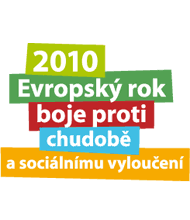The UN Convention on the Rights of People with Disabilities must become a reality for the respect of human rights, for the implementation of equal opportunities and for the elimination of discrimination.
On Tuesday, 25 May, YHD - Association for the theory and culture of handicap is organising a March for Independent Living, meeting in Argentinski Park in the centre of Ljubljana at 11am. At 12 am we will begin to march toward the Office of the President of the Republic and toward the National Assembly.
We demand:
- Inclusive educational system!
It represents the implementation of social justice because it creates a society of equal opportunities and equality. Disabled children and adolescents should be integrated into mainstream schools. State shouldn't be building special schools and institutions for them. Pupils and students must have the right and opportunity to be included into the regular educational system. Even though we have legislation which should provide for equal opportunities, in practice there are still complications with inclusion of children with special needs.
- Employment in regular work places!
It should be systematically encouraged. Even though we have Law on the Rehabilitation and Employment of disabled persons, many services which are enshrined in it, are not carried out. For example in five years not even one PA placement on the workplace was realised. This Law also excludes all those who have the disability status under the Law on Social care of mentally and physically disabled.
Closing down the institutions for persons with disabilities! Segregation of individuals in institutions is a violation of human rights itself. It is necessary that state institutions and service providers understand the need to ensure diversion of financial resources away from institutional care towards community services to enable Independent living for disabled. This is the only way which provides an individual with equal opportunities and participation.
- Personal assistance according to ENIL principles!
The Government proposal does not give a clear definition of what constitutes the right to PA, also it doesn't arise out of the concept of International movement on Independent living and it is based on models of care, that is happening because the Law on PA is based on the Law on long - term care which is aimed to older populations. We demand strict adherence of the Convention on the Rights of People with Disabilities, especially to article 19 which talks about the right to PA. The proposal separates individuals according to their diagnosis, in article 6 of the Law on PA, there is a condition which excludes all persons who are unable to plan their own daily activities; that represents exclusion of persons that are deprived of their capacity to exercise or they have signs of mental impairments. This represents a serious form of discrimination and also an attempt to exclude a large group of people that are in need of PA. The assessment of needs must be carried out by independent bodies as a financial co-source for services should also include funding from the Foundation of Disability and Humanitarian organizations.
Architectural accessibility - many public buildings are still inaccessible to disabled persons who use wheelchairs.
Information accessibility - all important documents should be issued in the form that is accessible to sensory and intellectually disabled persons. The National TV station should also introduce subtitling and sign language translation, at least for all shows of their own production. Web sites of public institutions should also be consistent with standards of accessibility for sensory disabled.
Public transport accessibility - disabled persons have the right to use public transport. All public transport should be accessible to persons that are using wheelchairs. Stations, buses and trains should be equipped with voice information.









